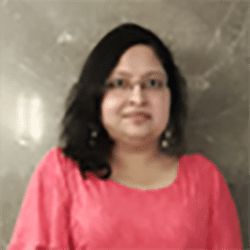Using the READi Model for Powerful Insights
Every individual experiences a phase in life when there is a lot of unrest in the mind as a result of an ongoing internal inquiry questioning our choices in life, meaning of success and happiness, life goals and purpose. This “noise” is perfectly normal and it only indicates that it’s time to get to the core to find some real answers!
They say to love someone else, you first need to love yourself. So, it makes sense to get to know the person you spend the most time with – yourself! We think we know ourselves well, but then there are situations when our own behavior surprises us and we fail to comprehend why we did what we did. Sometimes everything seems to be going as planned, but there is a constant feeling of “something missing,” making a question pop into our head: am I chasing the right set of goals? There are numerous such examples when a person feels something is lacking, but can’t quite pin-point what’s not right or what’s missing. This can happen when people are pursuing societal goals (goals aligned to social expectations), or when they are following a life path that has worked very well for someone else they know. Hence, they get confused when they do not feel happy achieving such goals.
Any of the above scenarios can be a trigger to embark upon the journey of self-discovery. It can be a challenging and complex process to start with and that’s where a coach can help.
A coach works with the individual to navigate through a structured process of self-discovery. This process involves discovering one’s core identity, including the identification of core values, beliefs, guiding tenets and intrinsic motivators that fit who they are and want to be. It then becomes easier for the individual to formulate life goals that align with their identity. Accomplishing these carefully crafted goals becomes meaningful as these goals serve their life’s purpose. The tenets also provide guidance for making crucial decisions in life.
Here is a simple and powerful model called READi, which is comprised of five phases – Reflect, Explore, Accept, Define and inspect. Each phase involves guided conversations enabled by a set of powerful questions to help clients process information and generate insights.
REFLECT
This phase helps the client reflect on their own experiences and draw insights from them. According to an article on Self Reflection by Dodo Khan, this process includes asking question like:
- What are the factors that are making us happy?
- What are the parts that we are not happy but rather disappointed about?
Khan says these kinds of questions make us “ponder on what our likes and dislikes are, why we don’t like something, and why we are attracted to something so much. And most importantly, are we doing what we really wanted to do what or are we just doing it all out of social influence and other external and emotional factors?”
By asking powerful questions and using structured exercises coaches draw out the values, beliefs and motivators that define the core identity of the individual.
EXPLORE
While a client is navigating through the reflection phase, there may be some instances where sufficient information is not available to draw insights. This is where a coach can encourage the client to explore activities that they have always enjoyed and/or spend some time to find out if there is a passion that was hidden until now etc.
ACCEPT
This phase can be the most difficult, as it usually takes time to accept the new- found realities about oneself and align that reality with the core identity.
DEFINE
In this phase, the newly crafted identity helps formulate life goals that align with the unique intrinsic needs of the individual and also helps in finding one’s true life purpose. When actions are aligned to the core identity, success becomes meaningful and state of happiness becomes permanent.
iNSPECT
This is an iterative phase in which the individual becomes more self-aware and is consciously watching for any dissonance which can trigger further self-reflection.
It is usually observed that the core values, tenets and intrinsic needs – if crafted well – do not change frequently. Life goals can shift over a period of time, but now they are aligned to the core identity and what we really want.


